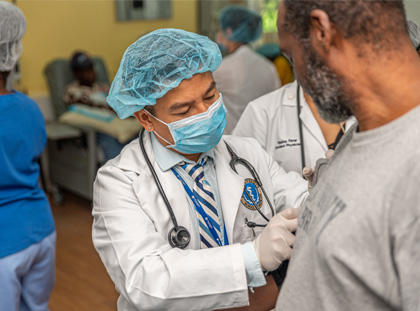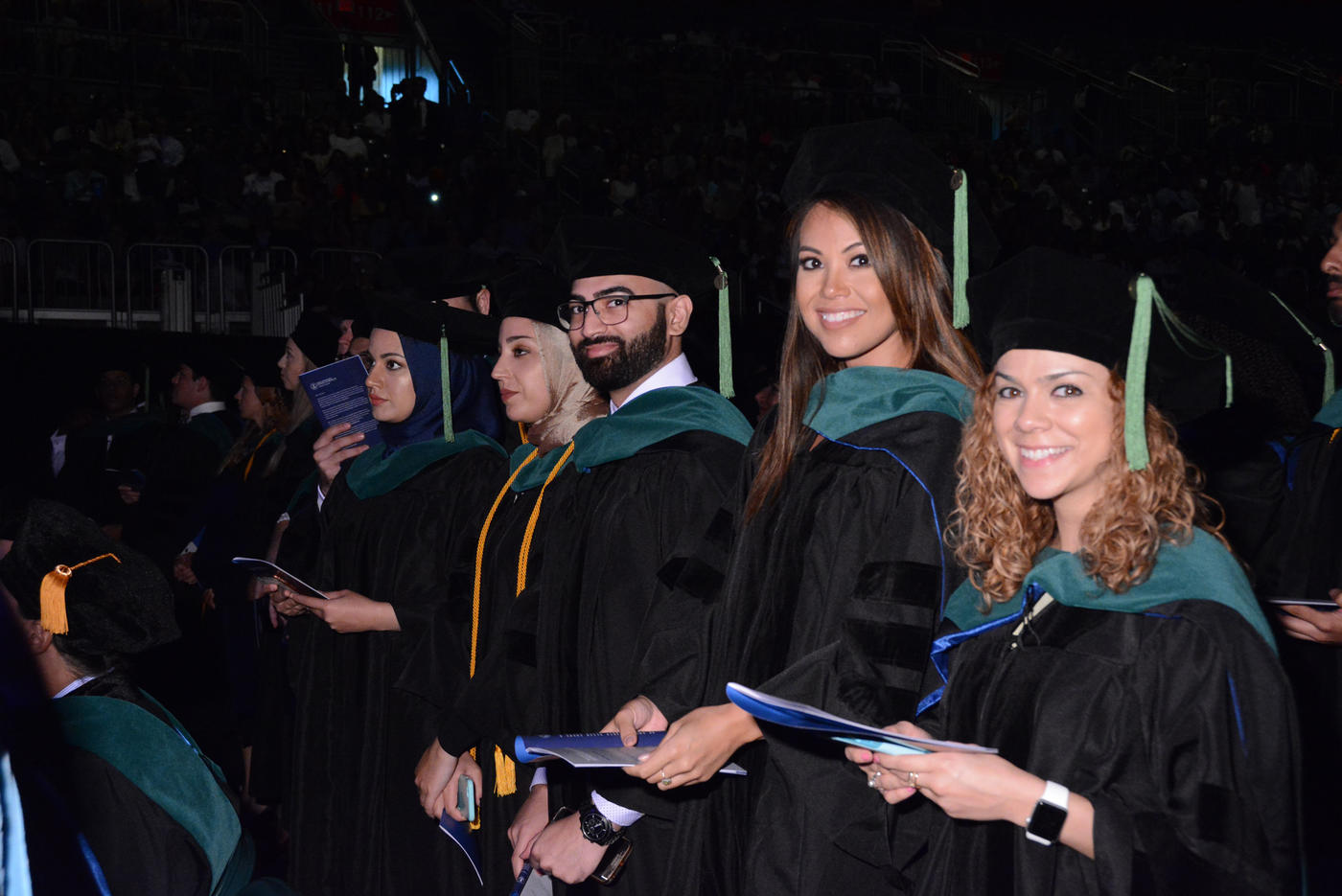Transitioning to an accredited medical school—such as Ross University School of Medicine(RUSM)*—after doing your undergraduate work involves a lot of changes. As a student, you must adjust to a new type of education that involves a different style of learning. Medical school is not just a harder version of your undergraduate education; it is a complex deluge of information that will test your academic limits. As a person, it will limit your free time, challenge your stamina, and plumb the depths of your inner strength. But medical school is also a direct means to an end—you are there to learn the things you need to know to become a doctor, nothing else.
Preparing for medical school in undergrad is essential, but it can still be difficult to make the transition from trying to get into medical school to actually succeeding after you get there. By understanding how to prepare for med school in undergrad, you may be ready for the changes and challenges you will encounter.
From Undergrad to Med School
For a successful transition to medical school, students should understand the many differences coming their way. Medical school presents such unique features as:
- Interrelated classes
When students are preparing for medical school in undergraduate classes, the coursework covers a variety of topics and is often unrelated. Some classes naturally follow others, but most classes during undergraduate education stand alone and are not interrelated.
In medical school, however, classes tend to build upon and connect to each other. Every class is related to medical practice, so the common thread is always there. This interrelationship between all classes is a change that many students notice as they begin medical school.
- Smaller class sizes
While students are preparing for medical school in their undergraduate education, there may be several hundred or thousands of students per graduating class. Medical schools generally accept a much smaller group of elite students, leading to much smaller class sizes. With fewer students, schools of medicine can dedicate more personalized attention and support services to individual students.
- Relocation
Many undergraduate students attend a university close to home. But because of the difficulty in getting into a medical school, many students must relocate to other places—sometimes even another country—to pursue their medical education. Planning for and executing the relocation thus becomes a big part of the transition to medical school. Finding a place to live, familiarizing yourself with the location, and finding the best and most cost effective method of transportation will all be important factors to consider.
- Memorization
In medical school, students must apply a veritable encyclopedia of detailed information, and there is a great emphasis on memorization—much more so than in undergraduate work. One potential strategy for preparing for medical school in undergrad is to get a head start on the information you will need to memorize in medical school. While you are still doing your undergrad work, study for the Medical College Admission Test® (MCAT®) and try connecting with a medical student or even a resident to help you identify ways to prepare for success in medical school.
Tips For a Smooth Transition from Undergrad to Medical School
The transition to medical school can seem daunting, but there are many tips you can follow to make the process as smooth as possible. By preparing for the transition ahead of time, you can hit the ground running and be positioned to start well.
- Organize your finances
Medical school is expensive, but the last thing you want to worry about is your financial situation. Financial organization will help you avoid the stresses of economic difficulties and allow you to concentrate on the already significant pressures of coursework and studying. Carefully creating and sticking to a budget will be key, as will be managing your student loans and keeping on top of financial aid applications. Many medical schools offer support services specifically geared toward helping students keep financially organized.
- Don’t fall behind
The pace of undergraduate school may allow you to study in chunks or cram as you approach tests, but medical school moves quickly and requires constant and lengthy study. Many medical school students establish study and review plans to force daily routines in order to keep up with coursework and remain as current as possible with the information they are learning. Falling behind just a little can lead to academic and emotional stress, and students should do all they can to keep up.
- Know your limits
During undergraduate preparation for medical school, a lot of attention is given to improving your student resumé as much as possible. Involvement in extracurricular activities, volunteering, and anything else that enhances your ability to get into medical school may be quite important. After entering medical school, however, extracurricular activities lose their importance and all focus is turned to academic performance. Budget your time accordingly. There is one goal here: to become a doctor. To do that, you must be academically strong throughout your medical school career and then pass the United States Medical Licensing Examinations® (USMLE®) that lead to your medical licensure.
- Take time for yourself
As you budget your time to concentrate on academic performance in medical school, you must also remember to schedule some down time. Extracurricular activities may be limited, but you can still go see a movie, go biking in the park, or do whatever it is that clears your mind and helps you relax. Undergraduate work is much less demanding, and allows many students significant free time. Medical school does not, but you must still take care of yourself, both emotionally and physically. To avoid burnout, take time for yourself and always remember to eat right and get proper rest and sleep.
- Enjoy the experience
It is easy to get lost in the details and stresses of medical school. While paying attention to the details is important, you should also try to relax and enjoy the experience. Not only is this best for your mental and emotional health, it will also help you stay more engaged and have better long-term success. Believe it or not, a day will come when you look back on medical school as a wonderful—if at times trying—experience.
The transition to medical school is an exciting time with many important considerations. By preparing for medical school in undergrad, you can make yourself a better and healthier student as your education advances. Learn more about the MD program at RUSM, and if you are ready, apply for admission to RUSM today!
Related Resources:



